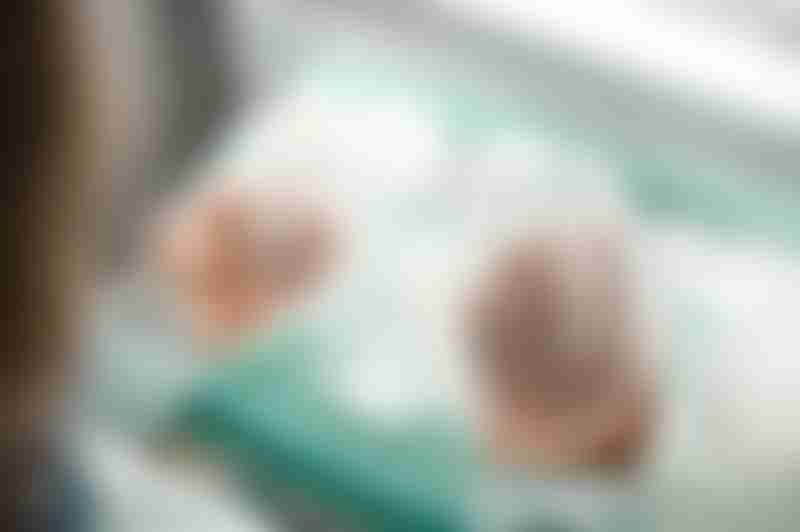Breast Implants: Important Things to Consider

Source: Shutterstock
Considering whether or not to get breast implant reconstruction after a mastectomy is an important decision. There are things to consider and proper deliberation has to be made with yourself and your doctors. While it has worked for many, it may or may not work for you, as everybody is different and has unique needs and concerns.
When considering breast reconstruction, there are several essential factors you should think about. Making an informed decision involves understanding the benefits and potential complications of the procedure.
Benefits of getting breast implants
Breast implant reconstruction can offer several benefits for breast cancer patients undergoing mastectomy (surgical removal of the breast). It's important to remember that each individual's situation is unique, and the decision to undergo breast implant reconstruction should be made in consultation with medical professionals. Here are some potential benefits of breast implants for breast cancer patients:
- Restored Body Symmetry
Breast implant reconstruction can help restore symmetry between the breasts and create new breast shapes, which can improve body image and self-confidence for women who have undergone unilateral (one-sided) or bilateral mastectomy.
- Enhanced Self-Esteem
Breast reconstruction with implants can help women feel more confident and comfortable with their appearance after cancer treatment. It can contribute to a positive body image and emotional well-being.
- Improved Psychological Well-Being
Breast cancer diagnosis and treatment can have significant psychological and emotional impacts. Breast reconstruction with implants can aid in emotional healing and boost the overall quality of life.
- Reclaiming Femininity
For many women, breasts are an essential symbol of femininity. Breast implants can help women regain a sense of femininity and feel more like themselves after the challenges of cancer treatment.
- Minimized Prosthesis Use
Some women who undergo mastectomy use external breast prostheses to achieve balance in clothing. Breast implants eliminate the need for external prostheses and provide a more permanent solution.
- Less Invasive Procedure
Breast implant reconstruction is typically a less invasive procedure compared to autologous tissue (flap) reconstruction, which involves using tissue from other parts of the body for breast reconstruction.
- Shorter Recovery Time
The recovery period after breast implant surgery is generally shorter than more complex reconstructive procedures, allowing patients to resume their daily activities sooner.
- Psychological Closure
For some patients, breast reconstruction with implants can provide a sense of closure, symbolizing the transition from cancer treatment to recovery and moving forward.
Potential complications of breast implants
While getting breast implants has many benefits for breast cancer patients, they come with potential complications, as with all surgeries. Some potential risks and complications associated with breast implants include:
- Capsular Contracture
This is the formation of excessive scar tissue around the implant, which can lead to the breast feeling firm, hard, or distorted. It can be uncomfortable and might require additional surgery to correct. Around 10% of women who get breast implants may experience some degree of capsular contracture, especially in those who have had prior radiation therapy done to their chest area.
- Implant Rupture or Leakage
Both saline and silicone implants can rupture or leak. Saline leaks are typically noticeable quickly as the breast size decreases, while silicone gel leaks might be harder to detect. Ruptured or leaking implants usually require removal or replacement.
- Infection
Any surgical procedure carries a risk of infection. If an infection occurs around the implant, it might need to be removed temporarily or permanently to treat the infection. This is more common after chemotherapy and in some women such as those who smoke or are diabetics.
- Hematoma and Seroma
Hematomas are collections of blood that can form around the implant after surgery. Seromas are collections of clear fluid. Both might require drainage.
- Unsatisfactory Cosmetic Outcome
The results of breast implant surgery might not meet the patient's expectations in terms of size, shape, symmetry, or overall appearance.
- Asymmetry
The breasts can appear uneven after surgery, either due to natural breast asymmetry or surgical factors.
- Visible Rippling or Wrinkling
In some cases, the edges of the implant might be visible or palpable under the skin, leading to a rippling or wrinkling effect on the breast surface.
- Scarring
While efforts are made to minimize scarring, all surgical procedures result in some degree of scarring. The location of the incision can affect the visibility of the scar.
- Pain and Discomfort
Pain and discomfort are common in the days and weeks following surgery, but persistent or severe pain might require medical attention.
- Anesthesia Risks
Anesthesia carries its own set of risks, including allergic reactions, breathing difficulties, and medication-related complications.
- Implant Malposition
Implants might shift or move from their intended position, leading to an unnatural appearance. Revision surgery might be needed to correct this.
- Changes Over Time
Breast implants are not permanent and might need to be replaced or removed due to complications or personal preferences.
- Rare Complications
Rare but severe complications include breast implant-associated anaplastic large cell lymphoma (BIA-ALCL), a rare type of lymphoma associated with textured implants, and other rare types of cancer in the breast capsule.
It's important to note that breast reconstruction, including the use of implants, is a personal decision. The benefits can vary based on individual circumstances, preferences, and goals. Consultation with a board-certified plastic surgeon, oncologist, and other medical professionals is essential to determine the most appropriate reconstruction approach for each patient's unique situation.